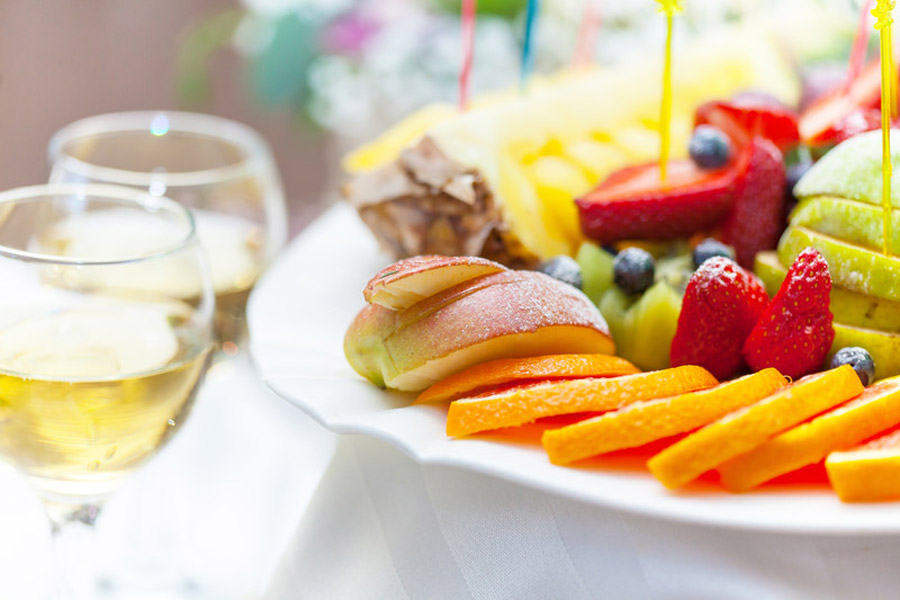Confidence in an Early Glass
When I found out this issue was featuring breakfast, I knew immediately what I wanted to tell you.
It starts with a story that I would not have believed myself had I not been at breakfast each morning with this gent. I was in North Carolina at a wine importers summit, a meeting full of hyperbole about the latest and greatest wines. Importers invited changemakers to taste the wines and learn about them in long, often boring seminars. Each day, attendees were hustled to some famous eating and drinking joint to have way too much to eat and drink. And each morning at breakfast, a sales guy for the importer would show up late to breakfast, glance nervously around the room to make sure everyone was engrossed in conversation, then proceed to pour the closest open bottle of wine into his cold cereal instead of milk. This gave new meaning to getting a great start at breakfast!
There are many occasions when it is fitting to enjoy a glass of wine with the first meal of the day – particularly when breakfast starts later, as is often the case at weekends, and actually becomes brunch. The first thing that comes to mind, of course, is Champagne – perhaps because it’s the classic celebratory breakfast nip? Or perhaps because it is refreshing and lively, in keeping with the feeling of being bright-eyed and bushy-tailed and ready to attack the day.
So let’s bring the ying of wines’ yang to bear – foods we might eat for breakfast – and not focus on the hour of the day. Around the globe, traditional breakfast fare differs as much as it does for any other meal of the day. Here in the United States, classic breakfast foods include savory dishes, such as eggs, bacon, sausage, cured meats, cheese and smoked fish; and sweeter delights like pancakes, waffles, freshly baked breads and toast.
Sparkling Wines
Champagne and sparkling wines are excellent breakfast partners because of their versatility. The crisp acidity as well as the bubbles cut through the richness of egg dishes and fried foods, the oiliness of smoked salmon and fattiness of many cured meats. Of course, it doesn’t have to be Champagne all the time. Cava, Prosecco and a plethora of New World sparkling wines will do the trick. Sparkling Dry Rosé is a favorite of mine. Right now, I am loving Elvio Tintero Grangia Rosato 2015 – a slightly fizzy blend where Barbera alone is vinified immediately following the harvest, with immediate pressing, which gives a very light rosato color. Moscato and Favorita must are kept at a low temperature to prevent fermentation and are then blended with the Barbera, and the sugar in the Moscato must sets off the second fermentation. Just before the bottling, a small dose of 1-3% vinified Barbera (for color) and 1% finished Moscato frizzante (for softness) is added. The result of all this strangeness in winemaking: An irresistible wine with a real gluggable character, just a hair off dry, very refreshing. It’s a warm-weather sipper that is low alcohol and big in smile provoking!
Other high-acid wines to do the same. Chose a dry Furmint from Hungary to enjoy with a late breakfast of poached eggs and rabbit sausage. Or you could opt for a dry Chenin Blanc from the Loire, an Albariño from Rías Baixas, a crisp Chablis or a dry Riesling.
Rosés
With spring here, start looking at the newly released Rosé wines. Go for a dry style, which will work with eggs and bacon (blood sausage in your favorite South American joint here in South Florida), eggs Benedict or a platter of cured meats. The 2015s should just be coming on the market.
Some red wines that work really well at breakfast are chilled Lambrusco from Italy, which will certainly cut through fatty fried foods. For lovers of cured meats or salty hard cheese, I would also recommend light reds, such as a Cru Beaujolais from France.
Sweets
For the waffles, pancakes, French toast and sweeter baked goods I am inclined to veer toward Moscato d’Asti – sweet, slightly frizzante, aromatic and only about 5-6% alcohol, or a delicate Mosel Riesling Kabinett, which is also low in alcohol (7 to 8%), and light bodied. An off-dry demi-sec Sparkling Vouvray from the Loire Valley would be delicious here, too.
Wine for breakfast is somewhat bracing and shocking. Afterward, you somehow feel more prepared. Any doubts that lie ahead about your day, any potential hindrances can all be handled. Calm, confident, just one glass gives you the perfect amount of buzz, and it doesn’t make you groggy. It drives a scrumptious wedge between your post-sleep morning and the rest of your day.




